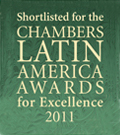-
About the firm
- The Firm
-
Members
- Our Members
Attorneys
- Henry Lang
- Juan Carlos Cersosimo
- Roberto Araya
- Mónica Romero
- Milena Jaikel
Support Personnel
- Edelweiss Schumacher
- Alejandro Marín
- Hermelinda Colville
-
How to...
- Latest News
- Contact Us
- Español
- Français
-
Expertise areas
-
Real Estate
-
Incorporation
-
Immigration
-
Litigation
-
Labor Law
-
Free Trade Zones
-
Trademarks
-

Language

CAN FOREIGN LANGUAGES BE VALIDLY USED IN BINDING DOCUMENTS AND TRANSACTIONS IN COSTA RICA?
Non-Spanish speakers living in Costa Rica are many times puzzled by Spanish documentation and hope that their businesses and day to day transactions could be made and executed in a language that they fully understand.
Many individuals are very confused by the existing rules governing this issue, and tend to have an extreme understanding about the matter, in most cases either believing that foreign languages –to be interpreted in this document as languages other than Spanish- can be widely used with the same legal effects as Spanish or that any documents or statements that are not made in Spanish lack any type of validity. Both positions are wrong.
In private contracts and agreements, the choice of language used to draft them does not, in principle, affect the validity of the instrument or of the commitments made through it. The general rule is that as long as all signing parties fully understand the language in which the document was drafted, foreign languages can be used. It is usual to sign this type of documents in several languages, so all parties feel comfortable with their contents, but no foreign language commitment will be enforceable if the party against which it is to be used did not understand it. It is also convenient, in cases of versions in several languages, to include language as to which versions controls in case of conflict.
The above indicated rule does not apply to government contracts, which are governed by the principles of administrative contracting law and cannot be in languages other than Spanish. Further, any documentation attached to a government contract (for example, resulting from a public bid) or to a filing or petition before a government entity (for example, a residency application) must include an official translation to Spanish, which, in most cases, must be made by an official translator appointed by the Costa Rican Ministry of Foreign Affairs and in some cases, by a Costa Rican Notary Public.
In the case of what are legally called “adhesion contracts” (basically, boiler-plate agreements, in which one of the parties imposes all the terms to the other, whose only decision is to accept them or not) such as credit card, airline or software license agreements, the agreements are also required to be in Spanish or otherwise be invalidated.
Labor contracts with employees must also be in Spanish. Although if this in not the case their validity can be maintained if the employer is able to convince the labor judge that the employee spoke and understood the foreign language in which it was drafted, the default, as with many other matters related to labor law in the country, would be to assume lack of understanding and of validity.
Non Spanish trademarks and trade names, as well as foreign corporate names can be registered, as long as a Spanish translation is included.
In what respects to instruments requiring the intervention of a Costa Rican Notary Public, and for the Notary to enter them into his “protocolo” book, for example, real estate transactions, incorporations of companies and wills, it is again mandatory for them to be entered and signed in Spanish. What is not known to all foreign language speakers is that it is the Notary’s legal obligation to fully translate their contents to signatories that do not speak Spanish to a language that they fully understand and to include a statement to that respect in the instrument itself. A Notary not following this requirement is subject to important penalties and the document itself can be challenged.
Finally, the contents of corporate books for Costa Rican companies must be entered in Spanish, otherwise, the minutes or entries will not be valid. A translation to a foreign language can be included, but for information purposes only.
It is usually frustrating to be dealing with foreign laws, customs and different ways of doing things. Knowledge of the basic principles in the use of foreign languages can make the life of a non Spanish speaker easier in Costa Rica and allow for the language barrier to not always be an additional element of confusion.
© All rights reserved






